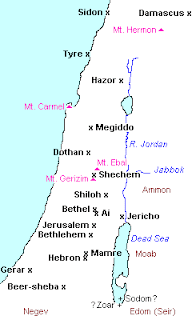It happens every mission trip. The resident is appreciative of the work being done by 5 kids and an adult for a solid week. Houses get painted. Porches get repaired or replaced. Windows get caulked. Lives get touched. Hearts get blessed.
It usually happens midweek as the home owner becomes more and more comfortable with the experience. It's then that they ask,
"Hey, how much do you kids get paid for all this work?"
"We don't get paid anything," they reply. "We have to pay to come on these trips, and we have to raise money all year long to come."
It's a moment of grace. Pure grace.
C.S. Lewis said that grace is Christianity's chief contribution to the study of God.
St. Paul taught us that it's "by grace that we are saved" (Ephesians 2:5).
Grace is a free gift. Theologically it's the free gift of God's love. Unmerited. Unearned. Unlimited. It can't be earned. Therefore it can never be lost, because we didn't earn it in the first place. God simply loves us. Period.
Questions:
How have you experienced grace in your life?
How have you experienced God's grace in your life?
Prayer: Thank You, Loving God, for the gift of your acceptance, your favor and your love. Thank you for showering us with every spiritual blessing in Christ. Thank you for the gift of salvation and the gift of your unconditional love. Amen.
Extra Credit
John Newton's "Amazing Grace"
It's perhaps the most beloved hymn of all time; yet it can be a little disconcerting calling ourselves "wretches."
Amazing Grace how sweat the sound
That saved a wretch like me.
I once was lost but now am found
Twas blind but now I see.
That saved a wretch like me.
I once was lost but now am found
Twas blind but now I see.
This might help. The composer, John Newton, led a rather wretched life for a number of years. He was a sailor as a young man and became involved in the slave trade. He himself was captured and enslaved. Eventually he became a strong convert to Christianity and a prominent supporter of the abolition of slavery.
In an influential pamphlet, "Thoughts Upon the Slave Trade," Newton described the horrific conditions of the slave ships and apologized for "a confession, which ... comes too late ... It will always be a subject of humiliating reflection to me, that I was once an active instrument in a business at which my heart now shudders."
It was Newton's deep awareness of his own sinfulness that led him to pen
such a tribute to God's Grace.
Twas grace that taught my heart to fear,
And grace my fears relieved.
How precious did that grace appear.
The hour I first believed.
 |
| John Newton 1725 - 1807 |


















